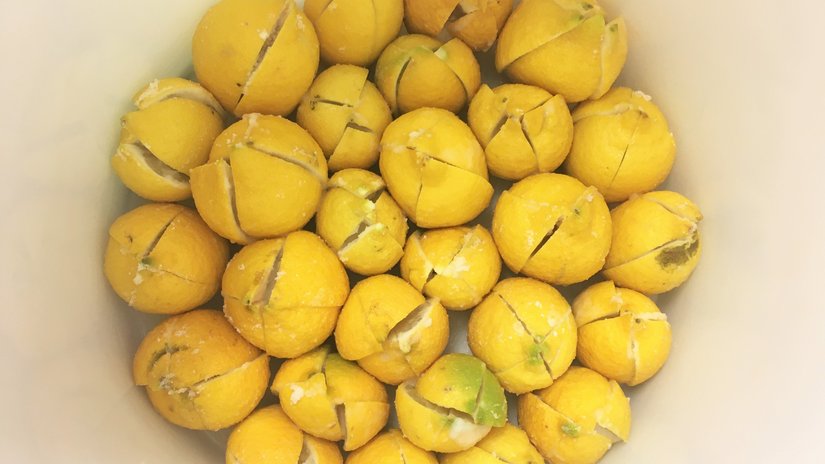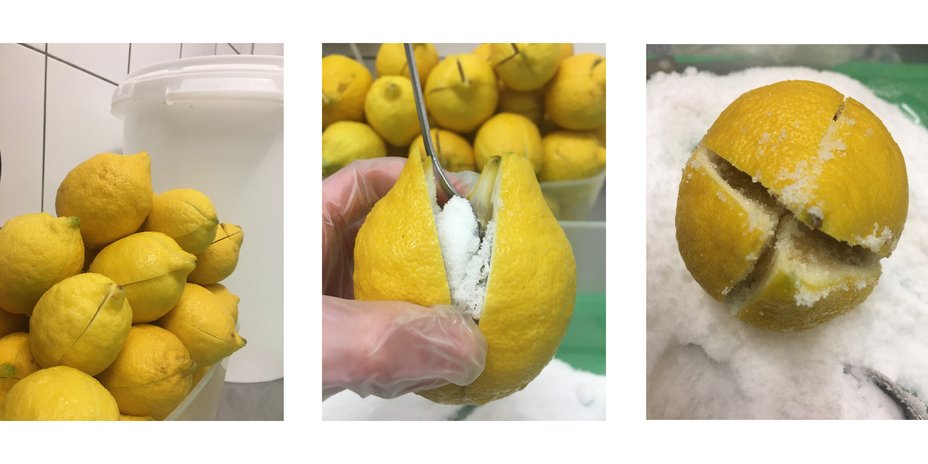Recipe: Fermented Lemons
A way to preserve - and enhance - large quantities of lemons. All you need is salt, some kitchen utensils and patience.Recipe by Roots Radicals

© Roots Radicals
Ingredients/equipment:
- Lemons; the juiciest, most organic, and ideally room temperature
- A large vessel with a sealing lid or air-lock lid, everything well-sanitized (let boiling water sit inside for 10 minutes, the lid included)
- Cheese cloth (optional but recommended)
- Hygienic gloves
- Any kind of pure, non-iodized salt
- Fermentation weights. A “zippered” plastic bag filled with brine or beans is also fine if you’re just starting out. Just make sure it’s non-metallic.
Preparation:
- Wash your lemons well.
- Placing each lemon pointy side up, make two perpendicular cuts almost to the bottom, leaving approximately 2cm to keep the quarters together.
- In the bottom of your sterilized jar, make a bed of salt in which the lemons can sit, up to half a centimeter.
- To fill the lemons with salt: fill a bowl with a good amount of salt. In the bowl, being careful not to tear the lemons, fill each lemon with enough salt to generously coat the flesh. Work with salt generously so that it can preserve the fruit.
- As you fill the lemons with salt, pack them tightly in your sterilized jar, making sure to leave as little space as possible. You should press them down to pack them and so they release their juices – there should be enough liquid to cover all the lemons. You can always add extra lemon juice, or water. Ideally, fill your jar almost to the top; there should be as little air as possible.
- Optionally, you can now cover them with cheese cloth if you have it. This will help protect them in case a white yeast so that no white yeast forms. Then make sure they stay submerged by using your clean fermentation weights.
- Close the jar tightly so that no air gets to the fruit. Since CO2 is produced during fermentation, you should open the jar briefly every day during fermentation so that the gas can escape. Otherwise there is a risk of explosion!
- Store the jar in a dark place at room temperature. Check the jar from time to time for the formation of mould or yeast.
- leave the lemons to ferment for at least 3 weeks. The longer they continue to ferment, the more tart their flavour will be. Taste and decide for yourself when you like it. You can slow down the fermentation process considerably in the refrigerator.
Use:
In North African cuisine, fermented lemons are used as a spice for stews, for example. But you can also use the lemons to flavour butter, as an aperitif in combination with olives or in rice dishes such as risotto. Both the whole fruit and the liquid can be used.

 Login
Login




